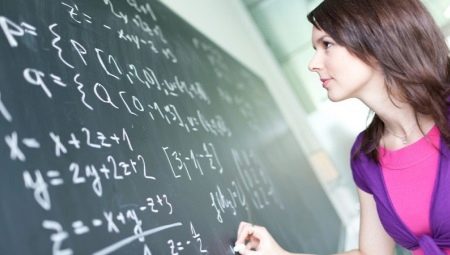All about professions related to mathematics and physics

There are many interesting professions associated with physics and mathematics in various fields of human activity. These specialists are in demand not only in the scientific field. They can also find employment in the field of economics and finance, in medicine, mechanics and mechanical engineering, as well as metallurgy and high technologies. In our review, we will tell you more about these specialties, and also consider the features of training and employment of specialists.
Peculiarities
Professions related to the mathematical direction are required in almost all spheres of our life. For example, without knowledge and skills in this discipline, it is difficult to imagine building a house, making an engine or creating an important computer program. Mathematics provides a basic toolkit in many scientific areas, the systems and abstract symbols that work in it reflect the functioning of real objects. Today there are quite a few different professions, in which it is simply impossible to achieve success without knowledge of mathematics.
All technical specialties are based on exact sciences, one of which is physics. It is widely used in mechanical engineering, engineering, programming, and radio engineering.
Knowledge of physics is required in mining and oil extraction, aircraft construction, and many other areas.

List of the best professions
There is an opinion that mainly representatives of the stronger sex become physicists and mathematicians. However, this is a common misconception: there are professions that suit both girls and boys.
For girls
As practice shows, in most cases women who have received a diploma in physics or mathematics become teachers. They can work in schools, colleges, higher education institutions or scientific organizations.
The profession of a scientist is no less in demand. A thorough study of the exact sciences allows you to carry out correct calculations and competently approach the organization and conduct of experiments. Based on the data obtained during the tests, scientists draw conclusions and make recommendations for the operation of the entire production system.
Mathematical knowledge is often applied in the financial sector. The financier must have an economic education. The main requirements for this specialty are the ability to deal with financial flows and the skill of finding additional reserves to increase income. Financial managers work in large enterprises as well as factories and plants.
Accountant is another exact science profession. As practice shows, most often in our country such a position is occupied by women. The duties of an accountant include accounting for the company's expenses and income, as well as reporting, calculating profits and deducting taxes. This specialist calculates wages, keeps records of material values and calculates the cost of production. The execution of such functions is closely related to the use of mathematical methods in work.

For guys
Young people can realize themselves in the position of a medical physicist. These staff members study equipment and devices and the underlying physical factors used to diagnose and treat patients.
At the junction of mathematics, cybernetics and economics, the direction of "economic cybernetics" arose. It considers the economy as a single complex system with information processes taking place in it. This specialty is perfect for young men.
Men often become IT specialists. Such employees are involved in programming problems. Their tasks include drawing up a method for processing digital data, as well as solving problems of hardware and software for computer processes.
Knowledge of physics and mathematics is required for men in industries such as mechanical engineering, rocketry and aircraft construction. In recent years, the profession of a nuclear engineer has become especially relevant.
Specialists of this profile, using knowledge of physical processes and techniques, solve the problems of efficient disposal of radioactive waste and obtaining alternative energy sources.

Education
Most often, training in mathematics and physics is carried out in specialized universities at the Faculty of Applied Mathematics. Upon admission, applicants take basic Russian and mathematics. Physics (or chemistry, but less often), as well as two subjects of the choice of an educational institution: informatics or information and communication analysis, is a core subject.
The compulsory program includes:
- higher mathematics;
- mathematical analysis;
- physics;
- theoretical mechanics;
- analytic geometry.
Also, students get acquainted with courses on the use of computer technology in scientific research. In addition, any education without fail includes non-core, but no less important subjects: foreign language, economics, ecology and philosophy.
Place of work
The realities of our time are such that the most demanded and developed sciences and applications today are either already too saturated with mathematical methods (computer science, as well as economics and finance), or at the moment are rapidly being saturated with them (medicine, sociology, linguistics). For example, Even 100 years ago, economics was an exclusively humanitarian science, and today almost half of the Nobel laureates in this discipline have a diploma in physics and mathematics specialization.
The process of automation and mathematization affects all new areas. Thus, the need for specialists with a similar bias is only growing every year. That is why a university graduate with a good diploma and practical research skills will always be in demand in the labor market.









